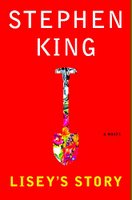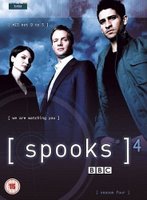 We’re a little more than a week away from Halloween, which is then followed--at least in the United Kingdom--by Guy Fawkes Night, an annual celebration of the failed Gunpowder Plot of 1605, in which Roman Catholic conspirators, one of whom was English soldier Fawkes (pictured at right), sought to blow up London’s Houses of Parliament and kill Protestant King James I, who was inside. This sets me to thinking about conspiracies and conspiracy theories, which of course are the lifeblood of many thrillers and crime novels.
We’re a little more than a week away from Halloween, which is then followed--at least in the United Kingdom--by Guy Fawkes Night, an annual celebration of the failed Gunpowder Plot of 1605, in which Roman Catholic conspirators, one of whom was English soldier Fawkes (pictured at right), sought to blow up London’s Houses of Parliament and kill Protestant King James I, who was inside. This sets me to thinking about conspiracies and conspiracy theories, which of course are the lifeblood of many thrillers and crime novels.Take, for example, Christopher Reich’s The Patriots Club (2005), which in July of this year received the International Thriller Writers’ first Best Thriller Novel Award. That novel features at its core a conspiracy involving right-wing politics and American foreign policy. One of the biggest-selling novels of all time is Dan Brown’s The Da Vinci Code (2003), which builds around an intricate religious conspiracy. And of course, films are rife with conspiracies, whether in The Manchurian Candidate, Chinatown, Syriana, The Constant Gardener, or the more recent Hollywoodland.
So, my theme this week is conspiracy theories. Believe it or not.
• It wasn’t only Guy Fawkes Night that inspired this, though. It was also my dinner last week with a pair of writers I greatly admire: Martyn Waites (because of his social conscience and hard-hitting plots; I think of him as a British George Pelecanos) and Zöe Sharp (creator of the Charlie Fox series). It was at that meal, served during the Off the Shelf Literary Festival in Sheffield, that the Crime Writers’ Association (CWA) presented its 2006 Short Story Dagger Award. In between bites, Zöe and Andy Sharp told me of their recent exploits at Bouchercon, in Madison, Wisconsin (about which Zöe has written some in her blog). However, the part that fascinated me, was their side trip to Dallas, Texas, and their visits to the notorious Texas School Book Depository and the nearby Grassy Knoll, both of which feature significantly in the November 1963 assassination of one of my heroes, U.S. President John F. Kennedy. We had a terrific discussion of those long-ago events and the conspiracy theories that have been generated by them; and even Danuta Reah (aka Carla Banks, author of The Forest of Souls) became fascinated by the myriad ideas we’ve all heard floating around the world regarding Kennedy’s killing. I, naturally, was happy to fuel the talk of Orwellian nightmares and the role played by the modern media in misdirecting public attention from large conspiratorial crimes.
• All this reminded me of the time, a few years back, when I interviewed Michael Marshall, author of The Straw Men, The Lonely Dead (U.S. title: The Upright Man), and Blood of Angels. All three of those novels center around a huge conspiracy involving a cabal of genetically linked serial killers who--get this--date from the dawn of man, and continue to ply their devious talents even today. Pretty incredible, sure, but also terrifically imaginative and involving. I was concerned, after the release of Angels in 2005, that Marshall might return to his roots in horror and science fiction (where he’s known by his full name, Michael Marshall Smith). But the good folks over at HarperCollins UK have reassured me that Marshall will be releasing another left-of-field crime novel next spring, this one titled The Intruders. Let me just say that I’m looking forward to that book as if it were a missing lottery ticket.
 • Britain is still going King crazy, in anticipation of Stephen King’s visit here on November 7. The Times of London produced a fabulous supplement about the author and his work, most of which--fortunately--is available online. I finished King’s latest, Lisey’s Story, a couple of weeks back and found it to be not only winningly complex, but probably his most personal piece of fiction yet. And that opinion was mirrored by Peter Millar of The Times (see his review here). Tickets to hear King speak at London’s Royal Albert Hall are nearly sold out, so if you’re planning to be in London on the 7th, grab one while you still can. (They go for £15 each; call 08708 303 488.) Remember, this is King’s first visit to the UK in 10 years. Who knows when he’ll be back?
• Britain is still going King crazy, in anticipation of Stephen King’s visit here on November 7. The Times of London produced a fabulous supplement about the author and his work, most of which--fortunately--is available online. I finished King’s latest, Lisey’s Story, a couple of weeks back and found it to be not only winningly complex, but probably his most personal piece of fiction yet. And that opinion was mirrored by Peter Millar of The Times (see his review here). Tickets to hear King speak at London’s Royal Albert Hall are nearly sold out, so if you’re planning to be in London on the 7th, grab one while you still can. (They go for £15 each; call 08708 303 488.) Remember, this is King’s first visit to the UK in 10 years. Who knows when he’ll be back?• I don’t watch much television nowadays, due to the amount of reading and writing I must do. And, besides, I find most of what’s available on the tube sheer drivel. Apparently, Barry Eisler (The Last Assassin) feels exactly the same. In a recent post at his blog, he addressed the topic of switching off the telly and how one might use his or her extra free time:
I’m a big fan of Eisler’s thrillers, and I enjoy his blogging, overall; when he sticks to subjects such as books, writing, and life, the blog really sings. (One of his finest posts related to an e-mail exchange with a bookseller.) I am less interested in his commentary about politics, as his viewpoints occasionally conflict with my liberal values system. But I’ll defend freedom of speech--his and mine--with my dying breath. And there’s entertainment to be found in some of the reader responses to Eisler’s political remarks.Think of what you can do with an hour a day for, say, four years. Become a black belt in a martial art. Acquire a foreign language. Learn a musical instrument.
Write a novel.
Or you can have watched many award-winning prime time television shows, all of which are no doubt excellent entertainment and thoroughly enjoyable.
What you can’t do is both. You have to choose. There’s no right answer; it’s a question of what’s important to you. But you should choose knowingly. Don’t delude yourself into thinking, as you plop down on the Barcolounger and fire up the remote, that one day you’re going to rent that isolated cabin and write that novel you’ve always been thinking about. It won’t happen. That one day is today. It’s right now. It’s every day to come, however many you have.
• While we’re on the subject of speech freedoms and liberal convictions, I want to mention how sad I was to learn about the death on October 8 of Pulitzer Prize winner Ira B. Harkey Jr., the onetime editor and publisher of the Pascagoula Chronicle. He was 88 years old. Harkey, you might remember, was pretty much the only white editor in Mississippi who supported racial desegregation of the University of Mississippi (“Ole Miss”) in 1962. His courage won him a Pulitzer, but led to his being ostracized in his hometown. He suffered death threats, but stood firmly upon his principals. In an interview many years later, Harkey recalled his idealism as a young editor: “I had the feeling--and I hate to say this because I sound like a jerk--I had the feeling I could make a difference. That I could really teach these people that the black man was a human being and not an animal. That he deserved the same rights as everyone else.” Tonight, I’ll open a special bottle of wine from my cellar and toast his life, for Ira Harkey did, indeed, make a difference. Click here to learn more about the man and his mission.
 • Remember how I just got through saying that television these days isn’t worth watching? Well, one programming exception--which reminds me both of why conspiracies are so very enthralling, and why the BBC has such a fine reputation-- is the espionage series Spooks (called MI5 in the States). The show is now midway through its fifth season, and on Monday will feature the second part of a two-part episode. I had the chance this weekend to preview both parts of that episode, and I must admit that at the end, I wept with joy, such was the brilliance of the show’s writing, acting, pace, production values, humanity, and topicality. Interestingly, I didn’t get hooked on Spooks until its third series; but thanks to the wonders of DVDs, I could catch up. I am now officially a Spooks geek. The elements I find most appealing about this show are (a) that its security-service managers aren’t your typical right-wing guns-and-ammo junkies, and (b) that the stories put Spooks’ top-notch cast of characters through some very anxiety-inducing moral dilemmas. (Players have got to stay sharp on this series: even major characters are in the habit of meeting violent ends.) I was delighted to find in my mail this week two new book releases related to the show: Spooks: The Personnel Files (Headline), which both Shots editor Mike Stotter and I found to be a fast and fascinating read; and Spooks: Behind the Scenes (Orion), a perfect companion for the series. By the way, the creator of this series is David Wolstencroft, who started out by penning espionage fiction. Though I didn’t care for his debut novel, Good News, Bad News (2005), I’ve heard favorable things said of his second book, Contact Zero, released earlier this year by Hodder Headline.
• Remember how I just got through saying that television these days isn’t worth watching? Well, one programming exception--which reminds me both of why conspiracies are so very enthralling, and why the BBC has such a fine reputation-- is the espionage series Spooks (called MI5 in the States). The show is now midway through its fifth season, and on Monday will feature the second part of a two-part episode. I had the chance this weekend to preview both parts of that episode, and I must admit that at the end, I wept with joy, such was the brilliance of the show’s writing, acting, pace, production values, humanity, and topicality. Interestingly, I didn’t get hooked on Spooks until its third series; but thanks to the wonders of DVDs, I could catch up. I am now officially a Spooks geek. The elements I find most appealing about this show are (a) that its security-service managers aren’t your typical right-wing guns-and-ammo junkies, and (b) that the stories put Spooks’ top-notch cast of characters through some very anxiety-inducing moral dilemmas. (Players have got to stay sharp on this series: even major characters are in the habit of meeting violent ends.) I was delighted to find in my mail this week two new book releases related to the show: Spooks: The Personnel Files (Headline), which both Shots editor Mike Stotter and I found to be a fast and fascinating read; and Spooks: Behind the Scenes (Orion), a perfect companion for the series. By the way, the creator of this series is David Wolstencroft, who started out by penning espionage fiction. Though I didn’t care for his debut novel, Good News, Bad News (2005), I’ve heard favorable things said of his second book, Contact Zero, released earlier this year by Hodder Headline.• The other TV series that’s caught my eye, and which ended its second season in Britain last week, is Extras, which stars Ricky Gervais, Stephen Merchant, and a host of A-list celebrities willing to lampoon themselves. The comedy in Extras is intelligent, thought-provoking and completely cringe-making. The series ended on a high note with a very funny cameo appearance by Robert De Niro. For my money, Extras is the funniest thing on television lately, beating its precursor, The Office, hands-down.
 • Back to the subject of conspiracies: Shots columnist and author Mike Ripley, along with reviewer Ayo Onatade, both speak highly of Ian Rankin’s latest release, The Naming of the Dead (Orion). This 16th Inspector John Rebus tale turns on a conspiracy of sorts unfolding during the Group of 8 (G8) Summit held in Scotland in 2005. The release of a Rankin novel is a certifiable event, and one that I look forward to with immense pleasure, having been present when the author was awarded the CWA Diamond Dagger back in 2005. The Independent on Sunday boasts a splendid interview with and profile of Rankin, which points out in part that The Naming of the Dead is the series’ third overtly political book. (He’s previously tackled the issues of immigration, asylum seekers, and racism.) By focusing on the G8 protests and the Make Poverty History campaign, the book tackles the question of whether the individual can effect change. The conclusion is not optimistic. As protesters take to the streets of Edinburgh and surround Gleneagles, it becomes apparent to Rebus that the decisions they wish to influence have already been made. Worse, he discovers that instead of tackling poverty, aid is tied to arms and, yet again, big business triumphs over the needs of the poor.
• Back to the subject of conspiracies: Shots columnist and author Mike Ripley, along with reviewer Ayo Onatade, both speak highly of Ian Rankin’s latest release, The Naming of the Dead (Orion). This 16th Inspector John Rebus tale turns on a conspiracy of sorts unfolding during the Group of 8 (G8) Summit held in Scotland in 2005. The release of a Rankin novel is a certifiable event, and one that I look forward to with immense pleasure, having been present when the author was awarded the CWA Diamond Dagger back in 2005. The Independent on Sunday boasts a splendid interview with and profile of Rankin, which points out in part that The Naming of the Dead is the series’ third overtly political book. (He’s previously tackled the issues of immigration, asylum seekers, and racism.) By focusing on the G8 protests and the Make Poverty History campaign, the book tackles the question of whether the individual can effect change. The conclusion is not optimistic. As protesters take to the streets of Edinburgh and surround Gleneagles, it becomes apparent to Rebus that the decisions they wish to influence have already been made. Worse, he discovers that instead of tackling poverty, aid is tied to arms and, yet again, big business triumphs over the needs of the poor.• A related note: Rankin will appear next week at Sheffield’s Off the Shelf Literature Festival to discuss the fate of his man Rebus. If you have a ticket (or can somehow scrounge one up at this late date), you won’t want to miss what he has to say.
• Finally, in the spirit of conspiracy theorizing, I decided to revisit the 2002 film version of Philip K. Dick’s short story “Imposter,” directed by Gary Fleder and starring Gary Sinise. This wonderful science-fiction yarn has Earth under attack from an alien race, which sends down to the planet a humanoid robot (in disguise), armed with a nuclear-type device. Problem is that the robot suicide bomber thinks it’s human. Once more, fiction and reality blur in this tale of identity and reality, and once again life (and death) imitate fiction. Or is it the other way around? Sometimes I feel I just don’t know Dick. If you feel the same way about Philip K., treat yourself to a night of director Richard Linklater’s A Scanner Darkly (2006), one of the best cinematic interpretations of Dick’s work.
More next week. In the meantime--and staying with our theme--ponder this quote from William S. Burroughs: “Sometimes paranoia’s just having all the facts.”

















No comments:
Post a Comment